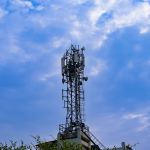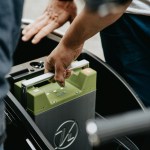News
Teaming up with DGB Daegu Bank, SK Telecom will be combining its 5G quantum cryptography tech with the bank’s mobile app, IM Bank, in September
Back in May, SK Telecom and Samsung launched the Galaxy A Quantum, the world’s first smartphone equipped with a quantum random number generator (QRNG).
Now, SK Telecom has announced that it will be working with DGB Daegu Bank to bring this QRNG technology to DGB’s mobile banking app, IM Bank.
This QRNG reportedly provides additional security when using specific services by “generating unpredictable and patternless pure random numbers”, according to an SK press release back in May. The smartphone’s RNG chip uses a CMOS image sensor to detect photons, which are the basis for the number generated for encryption keys, making it entirely unpredictable.
The IM Bank app will make use of this functionality when generating one-time passwords. SK and DGB claim that this will be the first quantum-powered service in the banking industry.
“Released in May 2020, the Galaxy A Quantum, the worlds first smartphone equipped with quantum random number generator, has been drawing global attention,” said Han Myung-jin, Vice President and Head of MNO Marketing Group of SK Telecom. “Going forward, we will continue to build a safer and more secure society by applying our world’s best quantum cryptography technologies to other areas including finance and Internet of Things.”
SK Telecom is not the only telco to be trialing quantum technology this year. Indeed, Deutsche Telekom also said it was exploring quantum technology with the Open European Quantum Key Distribution consortium back in July, while Italian operator TIM said in February that it was using quantum computing to help it plan its 5G network.
Quantum technology is at the cutting edge of innovation right now, advancing at a far faster pace than previously anticipated by experts. However, exactly how quickly the tech can mature, be deployed, and have an effective impact in the real world remains to be seen.
Also in the news:















